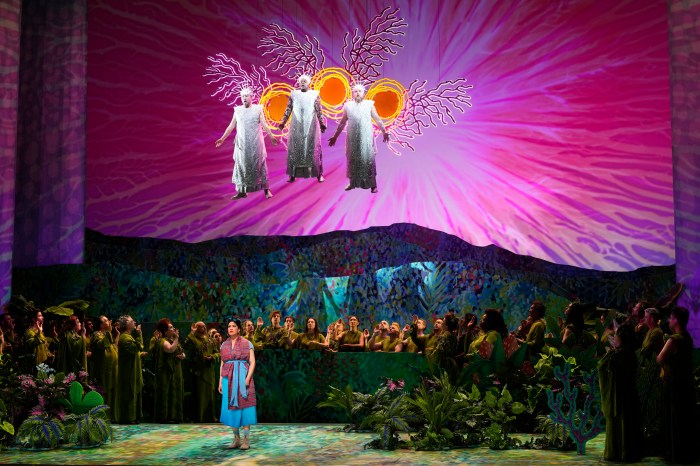HBO’s semi-horror anthology “Room 104” plays host to an array of visitors seeking temporary asylum from someone, or something, not unlike New York City.
Creators the Duplass brothers (Mark and Jay) have kept tight-lipped on where exactly the series takes place, but it’s safe to assume the hotel room with a deserted, cabinlike vibe is far from the bustle of the five boroughs. Still, the show offers vague connections to the city you call home.
Call us conspiracy theorists, but creator/executive producer Mark Duplass (“Togetherness”) agrees.
“I love it, you can just be like, ‘Room 104’ is the G train,’” Duplass says, entertaining the idea that there’s a loose, but not deliberate, idea that Room 104 can be seen as a New York City transplant.
“[H]otels like this in small towns where you don’t have many options to stay, it unifies everyone. Whether you’re rich or poor, whatever nationality or gender, everyone’s coming through this room and that is very much like the subway in New York,” he says.
Duplass admits it wasn’t a connection he thought of while writing the script, but as a former Greenpoint resident who goes once a year on his wife’s birthday to “revisit our old haunt,” he can easily entertain the idea.
“The truth is, when you’re on the subway you have massive racial and economic diversity and everyone is in a way-too-small space together. I think that’s a fair parallel,” he says.
“And when you’re there, you feel the ghosts of the people who have come before you and in some cases, you even smell them,” he adds.
Now in its sophomore season, “Room 104” continues to pack in a rotation of overnight guests from all walks of life who kick back in the same (often haunting) hotel. Below, Duplass entertains our other questions about the highly theorized show’s second stay.
What’s the significance behind the number 104?
There is a significance to the number but I don’t want to talk about it. You haven’t missed anything necessarily, and most importantly, being totally honest, there are a bunch of really weird fan theories starting to develop about this show, kind of like what happened with “Lost.” I don’t want to do anything to dissuade people from thinking very strange things about this show and what it all means. It’s a really fun thing to watch.
How did you originally come up with the idea for the series?
I came up with it 10 years ago. I brought it to my agent and said, “I have the greatest show in the world.” They were like, “Yeah, but no one likes anthology shows and you’re like nowhere near popular enough to make a show like this.” I think I got lucky because our star rose a little bit and the world of television exploded and opened up to the possibility of this. It was really a question of the timing being right to do this. When I look back on it and I think about what I was doing back then without knowing what I was doing is, I’ve been trying to create things that can be made cheaply and quickly and with my friends and that feel fun and new. A form of “Room 104” is the most perfect thing I’ve created to fit that.
Is there one story that you’ve created so far in “Room 104” that you’re particularly proud of?
I love all my children equally, but I will say the making of Arnold, which is our musical episode this season, was so fun because I collaborated with one of my best friends who is the composer for the show, and he also played in band like I did growing up. We just said, can we make a musical work in 25 minutes? We collaborated with the great Brian Tyree Henry from “Atlanta,” which most people don’t know is a musical theater god. And it was so fun. It was such a learning curve. We had to do it quickly and there was something about the newness of the form that really energized us.
While it’s an anthology, do you feel there’s a common thread or theme be connecting the individuals in these stories?
Yeah, it would be almost hard for me to discern that. I think the audience is in a better place to figure that out than I am. When I approach Room 104 and its stories, it’s a very instinctual thing. This show is made to be written and shot quickly. It’s all about trusting your instincts. In terms of if I’m trying to make any statement about the statements, that’s not how I approach it. Sometimes when I’m writing a script I have a character in mind and I have no idea what’s going to happen to them. I let them open the door and see what happens.
ON TV: New episodes of “Room 104” air on HBO every Friday at 11:30 p.m.

















